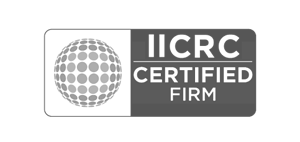If you’re a homeowner or business owner, you’re likely aware of the devastating effects water damage can have on your property. Water damage can occur suddenly or gradually, and it can be caused by a variety of factors such as floods, plumbing leaks, and roof issues.
But what damage does water cause, exactly? In addition to visible damage to your property’s structure and aesthetics, it can also lead to more severe consequences like electrical hazards and health problems.
That’s why it’s crucial to understand the risks associated with water damage and take proactive measures to prevent it from happening in the first place. In this article, we’ll discuss the potential effects of water damage, the most common causes, and essential prevention tips to safeguard your property.
Key Takeaways:
- Water damage can cause severe consequences beyond visible property damage.
- Various factors can lead to water damage, such as plumbing leaks and floods.
- Preventative maintenance and proper drainage systems can decrease the risk of water damage.
- Ignoring water damage can lead to further structural and aesthetic property damage.
- Immediate action is necessary to mitigate the adverse effects of water damage.
Understanding Water Damage and its Consequences
Water damage can arise from different sources, and as a homeowner, it’s crucial to know-how. By understanding water damage, you can recognize the signs, identify potential risks, and take affirmative action to prevent it. Water damage is not always apparent and can occur over time, causing damage to your property. Understanding the effects of water damage is the first step towards proactive prevention.
The consequences of water damage can be long-lasting and destructive. The damage can be structural, as water can weaken the foundation of your property. It can also lead to health issues, as stagnant water can promote the growth of bacteria and mold. In some cases, water damage can also cause electrical malfunctions and damage to your appliances.
It is essential to know how water infiltrates your property and the damage it can cause to each material and structure. Understanding this can help you recognize the warning signs of water damage and respond promptly.
| Material/Structure | Effect of Water Damage |
|---|---|
| Wood | Rot, Swell, Discoloration |
| Plaster | Cracks, Discoloration |
| Concrete | Cracks |
| Metal | Rust, Discoloration |
| Carpet | Mold, Odor, Staining |
As you can see, water damage can have significant and long-lasting consequences on different materials and structures. Being aware of these effects can help you take timely action to prevent them from happening.
- Regularly inspect your home or business for leaks and water damage.
- Ensure proper drainage systems to prevent flooding in and around your property.
- Install water alarms to detect leaks or flooding in the early stages.
- Immediately address any signs of water damage to prevent further harm.
By understanding water damage and its consequences, you can take proactive measures to prevent costly repairs and health hazards. It’s crucial to be aware of the risks of water damage and take active steps to safeguard your property.
Common Causes of Water Damage
Water damage can occur due to various reasons, and identifying the cause is critical in preventing it from happening again. Here are the most common causes of water damage:
| Causes | Description |
|---|---|
| Plumbing issues | Leaking pipes, burst pipes, and clogged drains can cause water damage to your property. |
| Roof leaks | A damaged or poorly maintained roof can allow water to seep through and cause significant damage. |
| Natural disasters | Floods, hurricanes, and heavy rainfall can lead to water damage. |
| Malfunctioning household appliances | Faulty washing machines, dishwashers, and refrigerators can cause water damage if they malfunction or leak. |
| Poor ventilation | Inadequate ventilation can cause moisture buildup and mold, leading to water damage if left unaddressed. |
By being aware of the common causes of water damage, you can take steps to prevent it from happening. Regular maintenance, prompt repairs, and proper insulation are some of the ways that can help protect your property from water damage disasters.
Effects of Water Damage on Different Property Elements
Water damage can have far-reaching effects on various elements of your property. Knowing what to expect can help you take swift action to mitigate the damage and restore your property. Here’s an overview of the effects of water damage on different elements:
| Property Element | Effects of Water Damage |
|---|---|
| Structural Integrity | Water can weaken the foundation and compromise the overall structural integrity of your property. If left unchecked, this can lead to severe damage and even collapse. |
| Electrical Systems | Water damage can short-circuit your electrical systems, posing a fire hazard. Additionally, the water can corrode electrical wiring and damage appliances and equipment. |
| Health Implications | Water damage can lead to the growth of mold and bacteria, which can cause respiratory problems, allergies, and other health issues. It can also attract pests, such as rodents and insects, and pose a threat to your health and safety. |
If you notice any signs of water damage on your property, such as mold growth, musty odors, or water stains, it’s crucial to take immediate action. Contact a professional water damage restoration company to assess the damage, provide an estimate, and commence cleanup and repairs.
Prevention Tips for Water Damage
Water damage can be devastating, but it’s preventable. Here are some essential prevention tips to help you protect your property from water damage:
- Regular Maintenance: Ensure that you maintain your plumbing systems, roof, and drainage systems regularly. Regular maintenance can help prevent leaks and other issues that can lead to water damage.
- Check Your Appliances: Inspect your appliances regularly to ensure that they are in good condition and not leaking.
- Install Proper Drainage: Make sure that your property has proper drainage systems in place to direct water away from your building.
- Be Mindful of Landscaping: Landscaping can affect your property’s drainage. Make sure that your landscaping is not causing water to pool around your home or business.
- Be Prepared for Inclement Weather: Be aware of the weather forecast and prepare your property accordingly. For example, if heavy rain is expected, ensure that your gutters are clear to prevent water from overflowing and causing damage.
- Insulate Pipes: Insulate pipes to prevent them from freezing and bursting during cold temperatures.
- Invest in Flood Insurance: If you live in an area prone to flooding, consider investing in flood insurance to protect your property in case of a flood.
By following these tips, you can mitigate the risks of water damage to your property and avoid potentially costly repairs.
FAQ
What are the risks associated with water damage?
Water damage can lead to various risks, including structural damage, mold growth, electrical hazards, and health problems.
What are the potential effects of water damage on my property?
Water damage can cause deterioration of building materials, discoloration of walls and ceilings, warping of wood, rusting of metal, and damage to electrical systems.
How can I prevent water damage from occurring?
To prevent water damage, make sure to regularly inspect your property for leaks, maintain your roof and gutters, install proper drainage systems, and ensure proper ventilation in high-moisture areas.
What are the common causes of water damage?
Common causes of water damage include plumbing leaks, burst pipes, floods, roof leaks, appliance malfunctions, and sewage backups.
How does water damage affect the structural integrity of a property?
Water damage can weaken the structural integrity of a property by compromising the foundation, walls, floors, and support beams. This can lead to structural collapses if not addressed promptly.
Are there any health risks associated with water damage?
Yes, water damage can create a conducive environment for mold growth, which can release harmful spores into the air and cause respiratory issues and allergies. Additionally, contaminated water can introduce bacteria and other pathogens, posing health risks.
What should I do if I discover water damage in my property?
If you discover water damage in your property, it is essential to act quickly. Start by stopping the source of water, if possible, and contact a professional water damage restoration company to assess the damage and facilitate the cleanup and drying process.
Can I handle water damage cleanup myself?
While minor water damage incidents can be addressed with DIY methods, it is generally recommended to seek professional help for comprehensive water damage cleanup. Professionals have the necessary equipment and expertise to ensure thorough water extraction, drying, and mold remediation.
How can I protect my electrical systems from water damage?
To protect electrical systems from water damage, it is important to keep them elevated and away from any potential sources of water. Use water-resistant electrical devices in areas prone to moisture, and consider installing ground fault circuit interrupters (GFCIs) to prevent electrical shocks.
Are there any precautions I can take to minimize the risk of water damage during severe weather events?
Yes, during severe weather events, such as storms or hurricanes, you can take precautions to minimize the risk of water damage. Secure your property by reinforcing windows and doors, clearing gutters and downspouts, and installing storm shutters. Consider investing in a sump pump and backup power source to prevent basement flooding.






